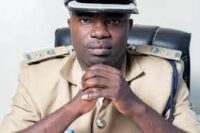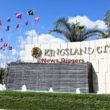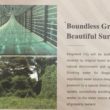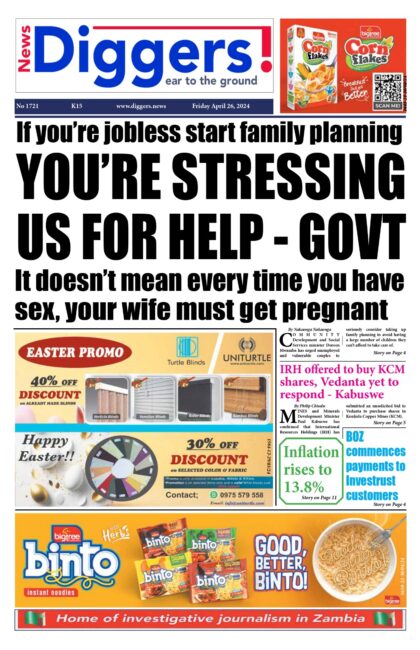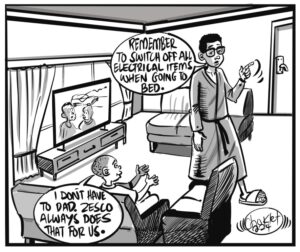Maybe we are too young to know, but we have never heard of any country that privatises its military base in order to finance its operations. If at all there is any, we are certain that the word “controversy” was not missing from such a deal.
Here in Zambia, so many things going on in our Air Force have left our jaws dropping and eyebrows up. From allegations of helping the ruling party to rig elections, to abuse of military transport for political activities – we have seen it all.
But the Kingsland City being built by the Chinese at the Zambia Air Force Twin Palm Base in Lusaka is one that cannot go without mention. We have picked this particular deal among the many that our Air Force is making because it goes beyond just privatising a military base. This project has a serious environmental impact to the poor people of Zambia.
To help those who find this development too complicated to follow; we will give a simplified summary of events. During president Rupiah Banda’s regime, government encroached on a forest reserve, east of Lusaka, which is a source of the Chalimbana River.
Mr Rupiah Banda’s regime changed this land use and gave it back to the Ministry of Defence without a de-gazetting process, before it was turned into residential land for the Zambia Air Force staff.
Under president Michael Sata, the staff houses were completed and the Chinese contractors handed the base to then Defence Minister Geoffrey Bwalya Mwamba, but it was not without controversy.
A community in Chongwe called the Chalimbana River Headwaters Conservation Trust challenged the development, arguing that the military base was contaminating the forest reserve, which is the source of drinking water for the villages, east of the Capital City. So, they sought intervention from the Zambia Environmental Management Authority, the Head of State, and the courts of law. But their plea fell on deaf ears.
“The area where the Zambia Air Force houses have been constructed on Twin Palm Road, as well as the location of the Kingsland City Project is within the Local Forest Reserve No. 27 and there is no record of any legal process that has been undertaken to de-gazette that forest and change its land use. It is further alarming to note that the Kingsland Project has commenced without an approved environmental assessment as required under the Environmental Management Act,” the community lamented in its letter to the Attorney General. But none of it could stop the destruction of the forest.
Instead, as Commander-In-Chief of the Armed Forces, President Edgar Lungu challenged the military wings to join the country’s economic diversification; and it is from that order that Zambia Air Force Commander Lt General Eric Chimese marched ahead with a property development team to lease out part of the military base.
As is the case with most of the Chinese projects under the PF government, ZAF’s contribution to this so-called Public Private Partnership is the offer of the forest reserve land to the Chinese to build a city. The agreement is that once the project is completed, the Zambia Air Force will own the entire Kingsland City.
“The biggest benefit for ZAF is the complete ownership of the facilities at the end of the concession period. No money, no loan or no funding will be required from the Government or from the Air Force for the development and construction of Kingsland City. And this viable project will be replicated in other areas of the country where ZAF owns land,” said Lt Gen. Chimese.
Today, Lt Gen Chimese who was used to transact is this deal has become an enemy of the State. He has been hounded out of the military base in the most humiliating way. We are told that he has decided to go on normal leave, just like any other public servant. Really?
Again, maybe we haven’t been around for too long to know, but in our few years of existence, we don’t recall an instance when a Zambia Air Force Commander went on leave, and his juniors back in the office remained announcing to the public that he had been replaced.
We are of no military administrative knowledge to argue, from a national security point of view, how dangerous it was to privatize a military base. We are also not as qualified as ZEMA to assure the public that the human waste from ZAF soldiers and the residents of Kingsland City will not be giving diarrhoea to the villages in Chongwe.
What we know, however, is that there is a furious corruption volcano at the Zambia Air Force, which a few dirty bottoms are trying to sit on and prevent from erupting. But experience tells us that it’s just a matter of time before those bottoms burn out and the public sees what was being kept under wraps.
State House wants to condemn Chimese to the court of public appeal, but the public is wise enough to realise that the Head of State is handling the ‘chased’ commander carefully because he is very likely sitting on explosives. This is the same Chimese, who risked his career together with other generals by acting in favour of Lungu during the transition period to pressurise Guy Scott. So at what point did he stop being loyal to the President?
We can see clearly that Lt Gen Chimese has fallen out of favour with President Lungu, for whatever peculiar reasons; and for whatever peculiar reasons, the Head of State has no guts to fire him. In the end, he has given us an Air Force with three Commanders. The Commander on leave, the Commander in office and the Commander-In-Chief himself. At this stage, we don’t know who is expected to report to who before any military action can be taken by our Air Force.
But this is Zambia, the failed Wakanda, where nothing is impossible. At the rate we are going, we shouldn’t be shocked to wake up and find a Chinese Air Force Commander welcoming President Lungu at the Airport.




